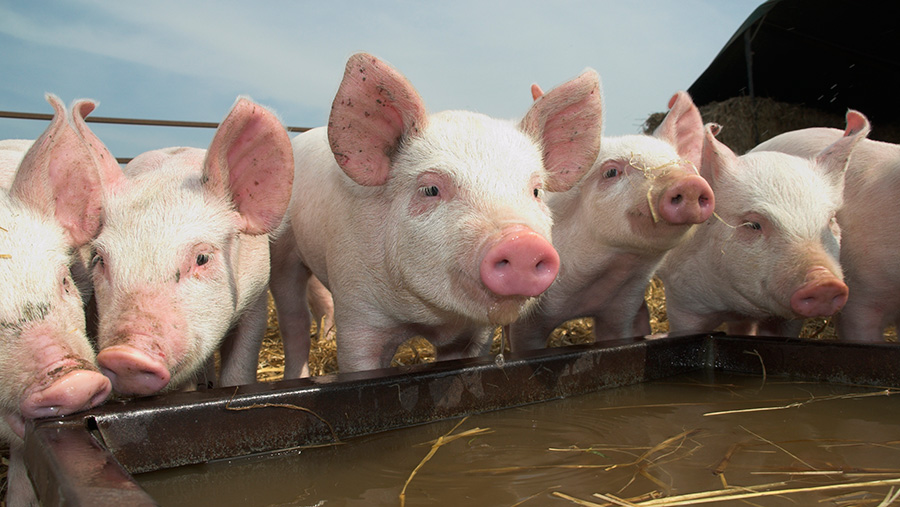‘Encouraging’ results on antibiotic resistance in pigs
 © Gary K Smith/FLPA/Imagebroker/REX/Shutterstock
© Gary K Smith/FLPA/Imagebroker/REX/Shutterstock The National Pig Association says it is encouraged to see little resistance to critically important classes of antibiotics for human health in salmonella isolated from the animals.
But it says it has “some concern” about the results of research on antibiotic resistance in E coli isolated from pigs.
Results for 2015 are contained in the latest government report on Veterinary Antimicrobial Resistance and Sales Surveillance (VARSS), published on Thursday (17 November).
See also: Antibiotic use down in livestock but more to do
Of the 150 isolates of E coli tested from randomly selected pigs, 2.7% were resistant to ciprofloxacin and none were resistant to cefotaxime, ceftazidime or colistin.
But after enrichment, presumptive extended spectrum beta-lactamase (ESBL) producing E coli were detected in 24.7% of 327 caecal samples.
The transfer of resistance from animals to humans was not a major concern Georgina Crawford
Bacteria that produce ESBL enzymes are resistant to many penicillin and cephalosporin antibiotics and often to other types of antibiotic.
E coli with ESBLs may cause urinary tract infections that can sometimes progress to more serious infections such as blood poisoning, which can be life threatening.
Resistance makes these infections more difficult to treat.
National Pig Association senior policy adviser Georgina Crayford said the association had some concern about the findings of ESBL-producing E coli.
But she added: “We are comforted by the fact that ESBL genes found in E coli from animals have in the past been different to the genes found in ESBL E coli in human clinical cases.”
Dr Crayford said this highlighted that the transfer of resistance from animals to humans was not a major concern.
Critically important
She said the association was “equally encouraged” to see little to no resistance to third and fourth generation cephalosporins and fluoroquinolones in salmonella isolated from pigs.
These were critically important classes of antibiotics for human health.
Dr Crayford said the VARSS report highlighted progress being made in reducing antibiotic use on pig farms but also contained pointers for the future.
“While we’re committed to using antibiotics responsibly, reductions in antibiotic use will not necessarily result in a reduction in bacterial resistance.
“The key is to ensure that further development of antimicrobial resistance does not happen.
“We must also ensure that, as we take further steps to reduce antibiotic usage, we do not compromise the health and welfare of our livestock.”
